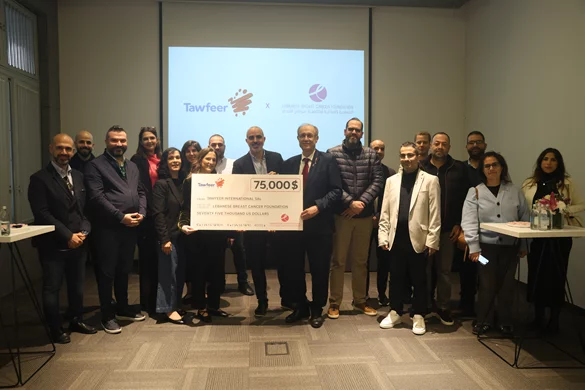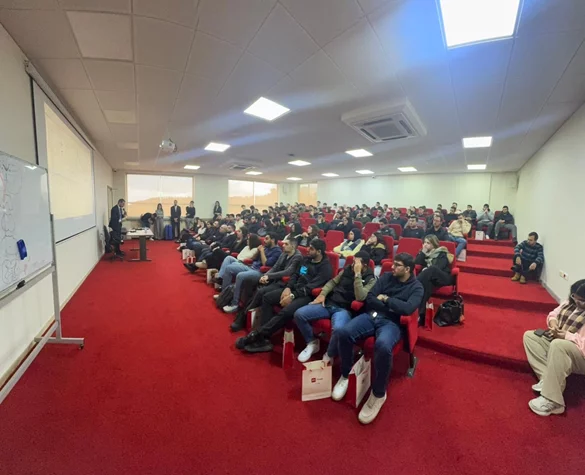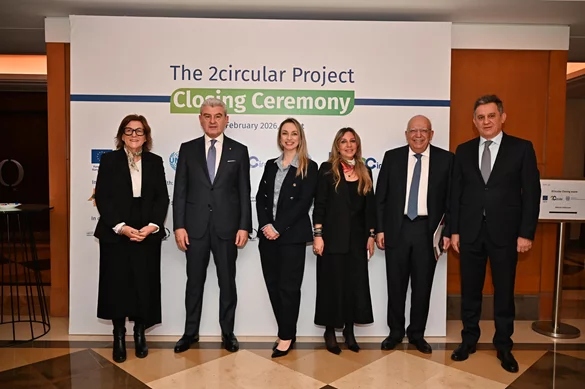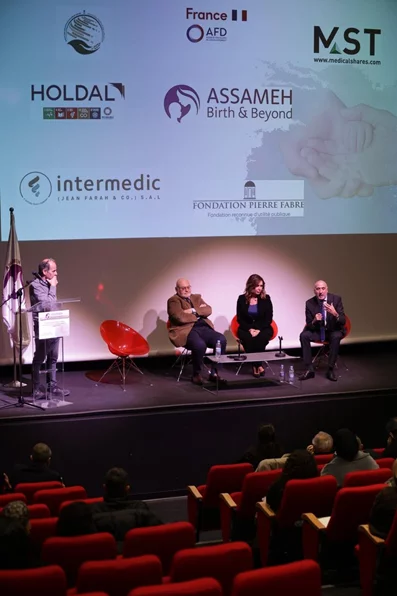In collaboration with the Lebanese Society of Endocrinology, Diabetes and Lipids (LSEDL), Merck, a leading science and technology company, announced its support of the 8th International Thyroid Awareness Week (ITAW)by addressing undiagnosed or untreated thyroid disorders in the millions of children across the world, who could be unknowingly living with the conditions.
Part of a regional roadshow, an awareness campaign entitled 'Catching the butterflies: spotting the symptoms of thyroid disorders in children' was launched in Beirut Souk to help parents recognize the most common symptoms of thyroid disorders through two 'Thyroid Butterfly' characters:Hypo, a slow growing, tired and sluggish blue butterfly representing the symptoms of hypothyroidism (underactive thyroid gland) and Hyper, a thin, overly active, fidgety pink butterfly, representing the symptoms of hyperthyroidism (overactive thyroid gland).
Hala Sleiman, General Manager Near East, at Merck's said:"Merck is delighted to partner with the LSEDL during the 2016 International Thyroid Awareness Week. Our aim is to ensure mainly that the mother is aware of the disease symptoms, as we believe the women are the key pillar at home to drive healthy families. If the mother suspects that her child is suffering of a thyroid disorder, she should visit a physician and ask for a screening test, which is a simple blood test."
Dr.Mounzer Saleh, President of the LSEDL emphasised on the importance of this awareness campaign: "Today's awareness program is very important as it will educate people on thyroid disorder in children and its consequences on the mind and body development if not treated properly at early stages".
A recent international survey commissioned by Merck revealed that 84% of mothers could not correctly identify the most common symptoms of thyroid disorders which, if left untreated, can have a detrimental effect on a child's growth, brain development and general well-being.
The importance of raising awareness of childhood thyroid disorders among mothers was recently reinforced by results of an international survey commissioned by Merck. Data from 1,600 mothers in 16 countries revealed gaps in awareness in three key areas: testing for thyroid disorders, knowledge of the most common symptoms, and communication between mothers and their child's physician.
Key findings from the survey show that almost two-thirds (63%) of all mothers surveyed said that their child had not been tested for a thyroid disorder, rising to 85% among mothers who had no family history of the conditions.4 Most mothers were not aware of the symptoms of thyroid disorders,withan average of 84% of those surveyed unable to identify the most common symptoms of hypothyroidism and hyperthyroidism.4
When presented with a list of the most commonsymptoms, an average of one in five mothers (20%) reported spotting these in their child.4 However, almosthalf of the mothers that spotted these symptoms (49%) did not discuss them with a physician.4Overall, almost two thirds (58%) of mothers surveyed said that they had not spoken to aphysician about thyroid disorders.4 This percentage rose steeply to 84% among the mothers who had no family history of thyroid disorders.4
The awareness campaign is set to be launched simultaneously in Iraq, Jordan and Iran in collaboration with medical societies from each country.



-160603125550932.jpg)
-160603125555113.jpg)












.webp)








